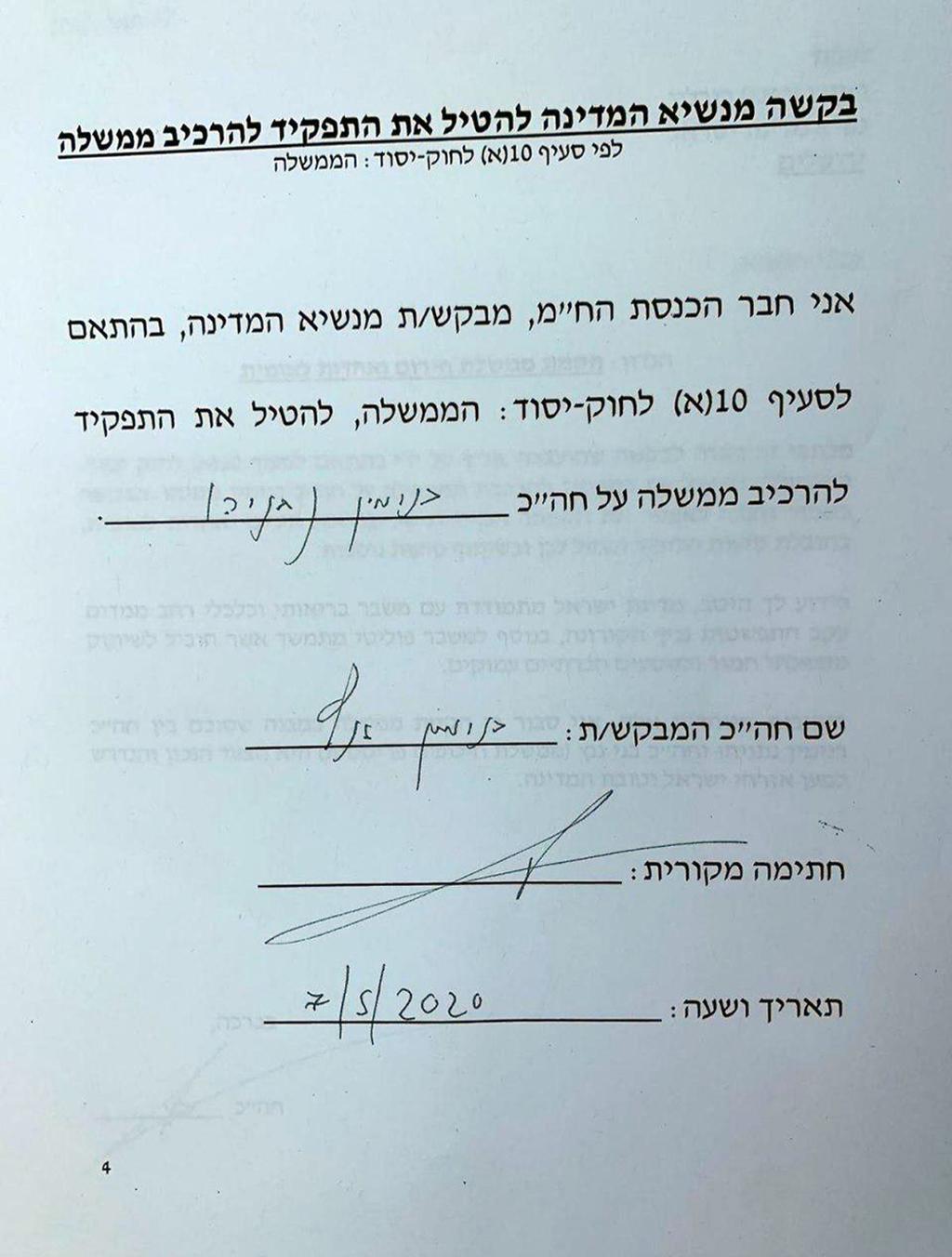Getting your Trinity Audio player ready...
Prime Minister Benjamin Netanyahu formally received the support of a majority of lawmakers to lead a new government on Thursday, paving the way for a controversial power-sharing deal with rival-turned-partner Benny Gantz.
Netanyahu's Likud and Gantz's Blue & White parties issued a statement saying they had given President Reuven Rivlin the signatures of 72 Knesset members recommending Netanyahu as prime minister. He needed the support of 61 legislators in the 120-seat parliament.
6 View gallery
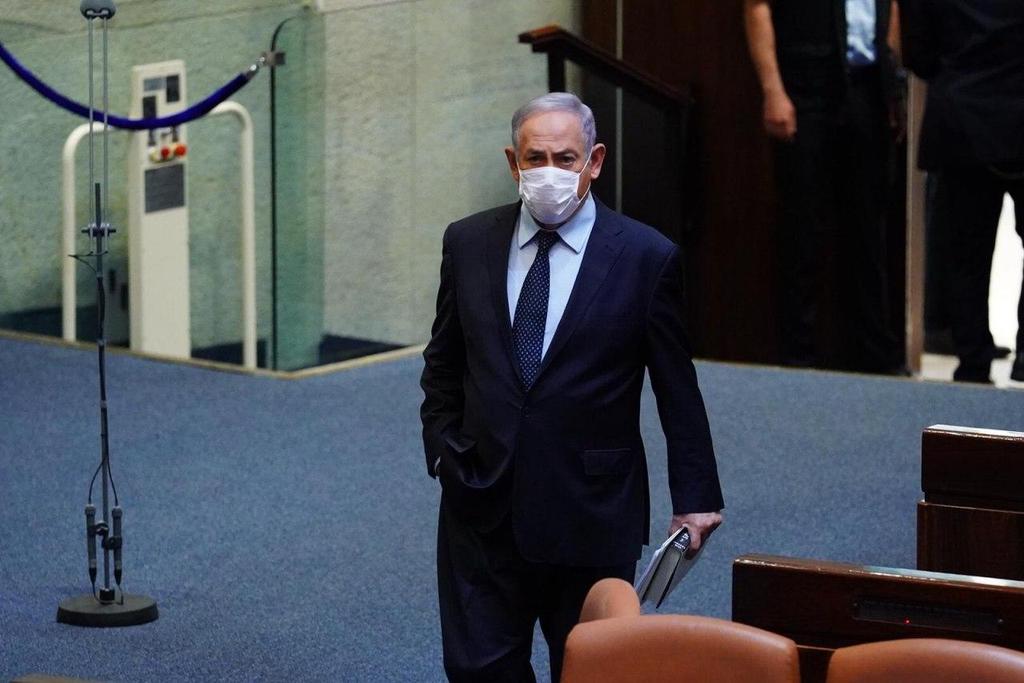

Prime Minister Benjamin Netanyahu in the Knesset as lawmakers approve legislative changes to facilitate his coalition deal with Benny Gantz
(Photo: The Knesset)
Likud and Blue & White said that “representatives of the two parties submitted to President Reuven Rivlin the 72 signatures of Knesset members recommending Benjamin Netanyahu for the task of assembling an emergency national unity government."
Once approved by Rivlin, Netanyahu will have two weeks to form a government.
6 View gallery
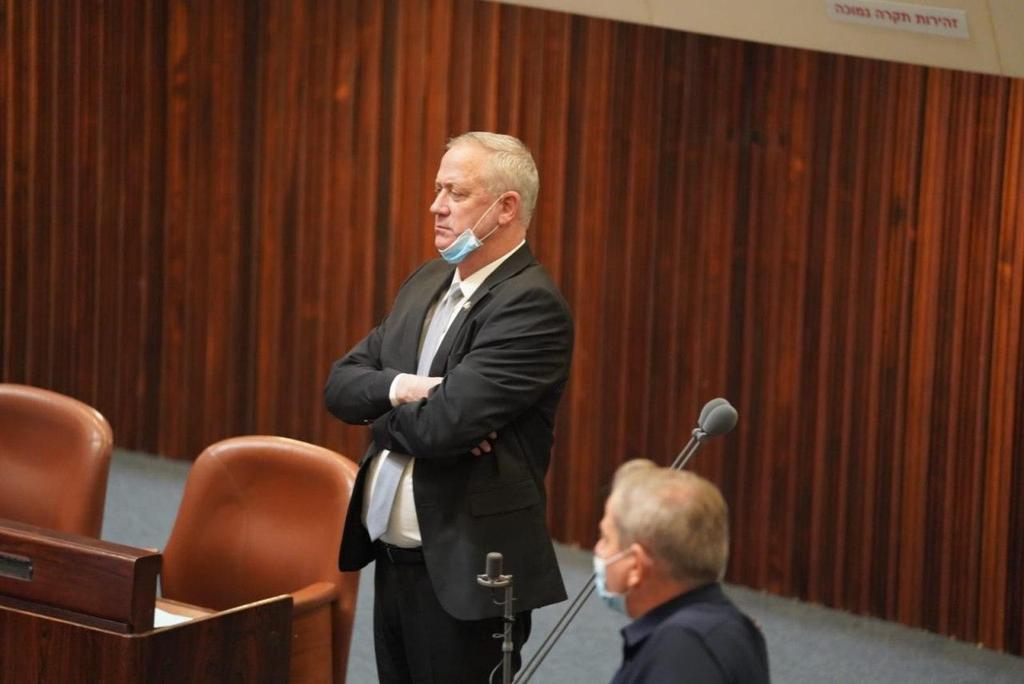

Knesset Speaker Benny Gantz watches as lawmakers pave the way for his coalition deal with Benjamin Netanyahu
(Photo: The Knesset)
Of the 72 MKs who supported Netanyahu, 36 were members of Likud, 16 came from Blue & White, two were from Derech Eretz party, two from Labor, nine from Shas and seven from United Torah Judaism.
Lawmakers from Naftali Bennett's Yamina party did not add their support to back Netanyahu and was unclear whether they would join the new government, which is set to be sworn in on Wednesday of next week.
Blue & White asked the president to omit the fact that its MKs were among those who recommended Netanyahu, though the request was denied due to the need for transparency.
The Knesset passed legislation earlier in the day that paved the way for Netanyahu and Gantz to share the premiership and end a year-long political deadlock.
The legislation, which passed easily in a 72-36 vote, comes a day after the High Court ruled that it would not intervene in the new arrangement or prevent Netanyahu from leading the government despite the criminal indictments against him.
6 View gallery
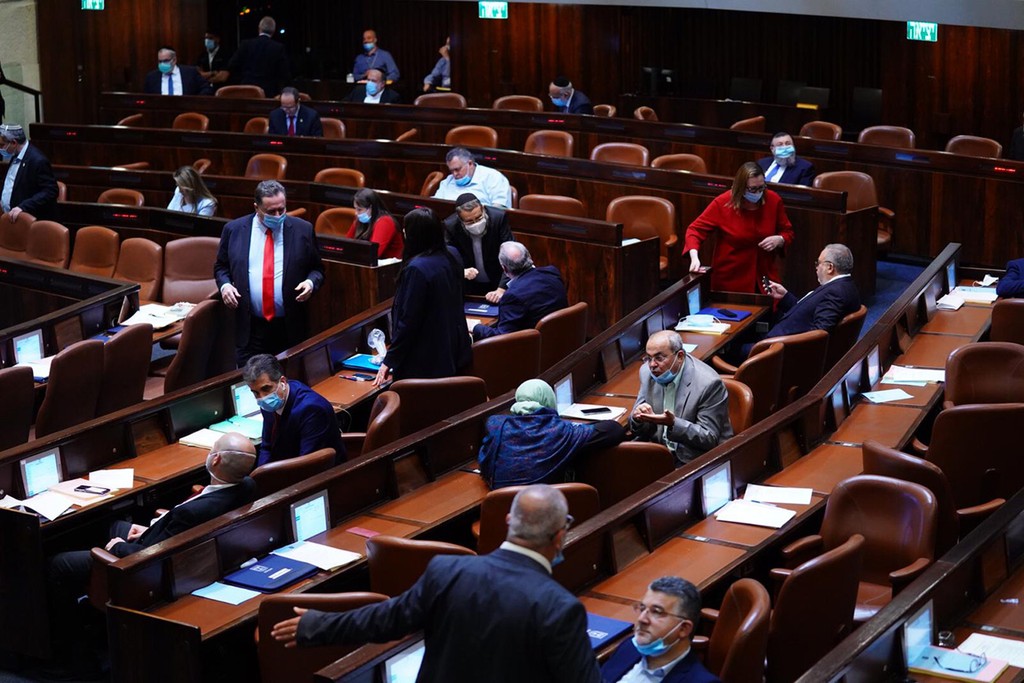

MKs in the Knesset during the vote on legislation to allow the Gantz-Netanyahu deal
(Photo: The Knesset)
The decision essentially ends the country's prolonged political stalemate and prevented Israel from being plunged into its fourth consecutive election in just over a year.
Critics and good-government groups said the deal was illegal and challenged it in the High Court.
They argued that the law should bar an official charged with serious crimes from continuing as prime minister and objected to the newly created position of "alternate prime minister," a post that could allow Netanyahu to remain in office throughout his corruption trial and a potential appeals process.
The new position will enjoy all the trappings of the prime minister, including an official residence and, key for Netanyahu, an exemption from a law that requires public officials who are not prime minister to resign if charged with a crime.
6 View gallery


Israelis in masks attend a protest in Tel Aviv against the coalition agreement. The banner reads: Netanyahu is dangerous for Israel
(Photo: Moti Kimchi)
Over two days of deliberations this week, the court considered the arguments before ruling there were no legal grounds to prevent the government from taking office.
Netanyahu has been indicted with fraud, breach of trust and accepting bribes in a series of scandals involving trading favors with wealthy media moguls. His trial is set to start later this month.
Netanyahu denies any wrongdoing, and since his indictment last fall, he has repeatedly lashed out at the country's legal system. He and his political allies have taken special aim at the High Court, accusing it of overreach and political interference.
6 View gallery
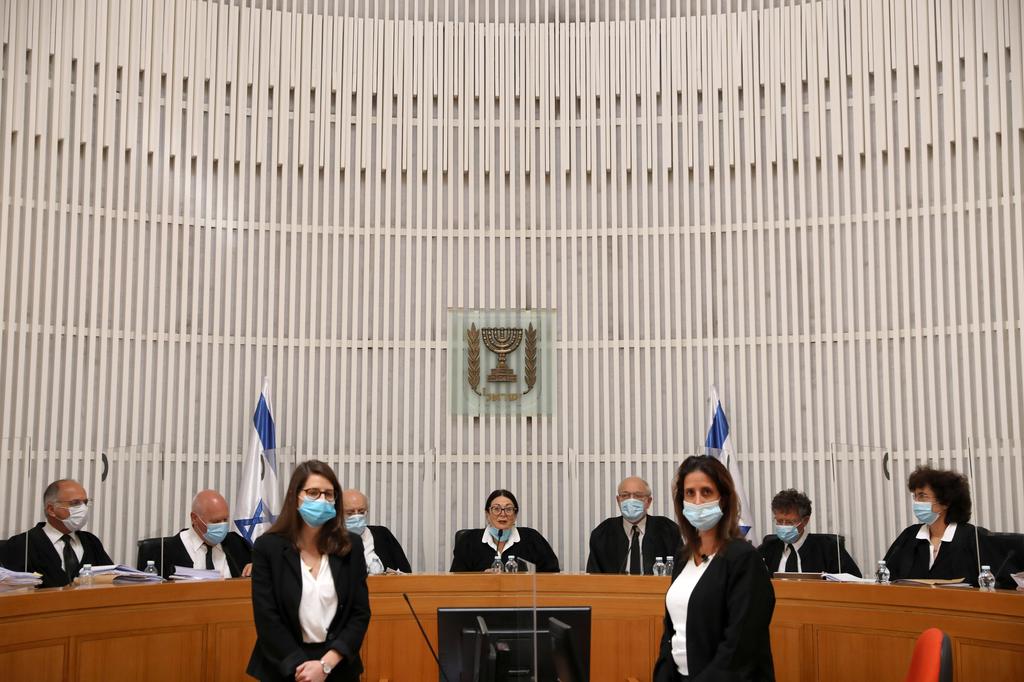

Chief Justice Esther Hayut presides over a High Court hearing over the coalition agreement
(Photo: EPA)
Gantz, who is to serve as defense minister during the government's first 18 months before taking over from Netanyahu as premier in October 2021, insists his presence will temper the assault on the legal establishment and install a sense of decorum to counter the divisiveness that had characterized Netanyahu's successive caretaker governments.
Still, their unorthodox arrangement, in which each will have virtual veto power over the other's decisions, required the new legislation that was harshly criticized by the opposition and civil rights groups.


